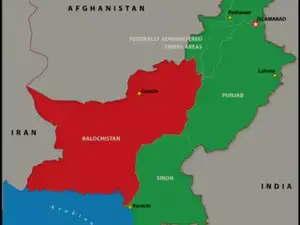Balochistan News: Independence Claims, Regional Tensions, and Global Implications

Balochistan, the largest province in Pakistan by area, is once again at the center of regional headlines. Recent Balochistan news reports have spotlighted bold declarations of independence by Baloch leaders, renewed activism, and heightened tensions within South Asia.
Historic Declaration of Independence
In a move that has reverberated internationally, Mir Yar Baloch and other prominent leaders have symbolically declared Balochistan's independence. This act sparked significant debate and trended widely on social media. Mir Yar Baloch’s statements underlined a call for international recognition, urging the Indian government to allow a Baloch embassy in New Delhi and appealing to the United Nations for support and peacekeeping intervention. The situation is dynamic and closely monitored by global observers (source).
Background and Political Context
Balochistan has a long history marked by complex relations with the central Pakistani government. Originally part of the princely state of Kalat, the region was annexed by Pakistan in 1948, a move that ignited decades of unrest and calls for autonomy. Today’s Balochistan news is shaped by this legacy, as generations of Baloch nationalists continue demanding autonomy or outright independence (Firstpost details the background and recent activism).
Recent Tensions and Security Concerns
Over the past few weeks, the situation in Balochistan has escalated. The Balochistan Liberation Army (BLA) claimed responsibility for a series of attacks on critical infrastructure. According to reports, freedom fighters targeted gas fields and military installations in response to what they describe as the Pakistani state’s continued suppression (learn more on The Economic Times). Civilians and human rights organizations have raised concerns over persistent enforced disappearances and extrajudicial actions. Each incident further intensifies local grievances and international scrutiny.
The Role of Gwadar Port and Economic Interests
Balochistan’s location is strategically important, especially with the development of the Gwadar port as part of the China-Pakistan Economic Corridor (CPEC). While significant investment has flowed into the province through CPEC, many local communities report exclusion from development benefits and loss of land rights. Insurgent groups have targeted projects and foreign workers in protest, further complicating efforts to bring stability to the region (background from Firstpost).
International Appeals and Diplomatic Signaling
Leaders of the independence movement have extended appeals to India and the United Nations. These calls include requests for diplomatic recognition, humanitarian relief, and intervention against alleged military operations. India has yet to respond officially, but the movement draws significant attention from policymakers and analysts across the region.
Conclusion: The Road Ahead for Balochistan
Ongoing developments in Balochistan underscore the region’s central role in South Asian security and politics. As Baloch leaders pursue international recognition and local groups escalate their activism, Balochistan news remains essential reading for anyone tracking regional affairs. The global community continues to watch closely, awaiting the next chapter in this developing story.